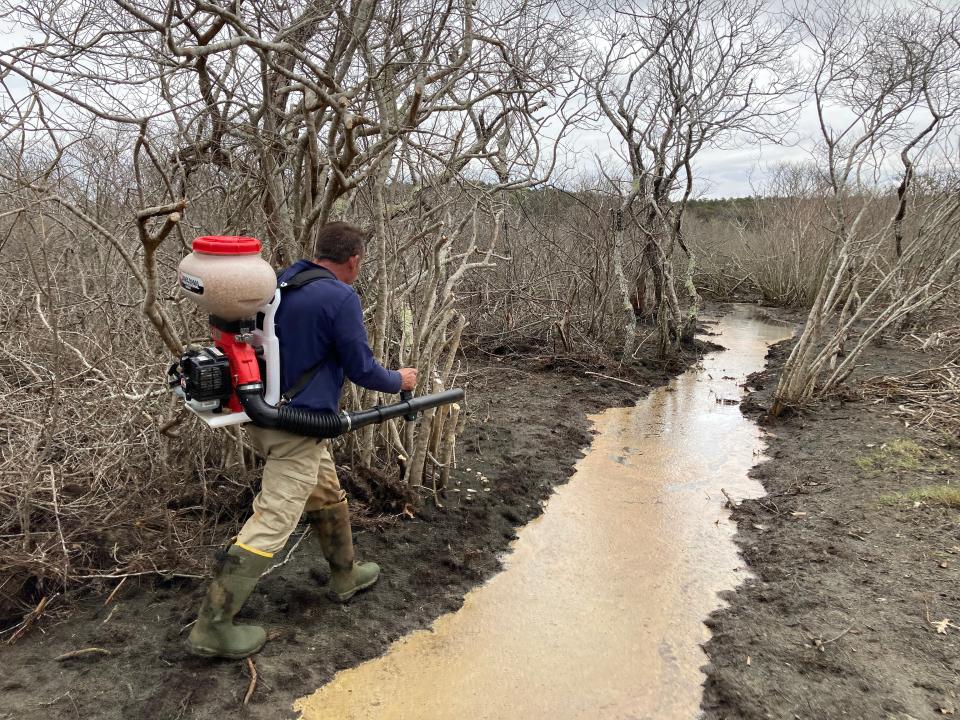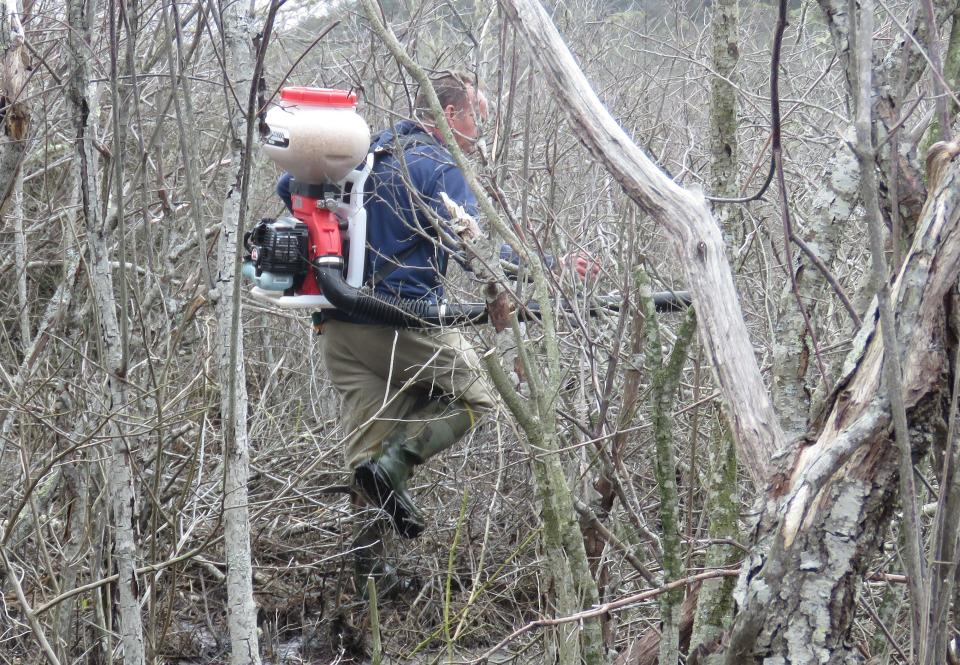Mosquito forecast for Cape Cod? Think wet weather and yard vigilance
They are the little flying skunks at the picnic. Sure, mosquitoes don't smell funny, but they are heck-bent on drinking your blood, with a side dish of driving you nuts. Why do they do it? So they can fuel another generation of rotters who will do the same thing. Ah, nature!
You may be wondering: is there a way to predict when mosquitoes will be at their worst? After all, we're wired up with weather forecasts on our phones and TVs. Sometimes those prognosticators even get it right, as they peer into gizmos and atmospheric entrails. Are there tools that could be applied to mosquitoes?
The folks from OFF! insect repellents think so. At the beginning of May, they rolled out the OFF!Cast Mosquito Forecast, an online tool that, according to a news release "accurately predicts mosquito behavior and mosquito populations in specific geographical locations."

It's easy to use the tool and the science behind it is pretty cool. You plug in your Zip code and up pops a seven-day mosquito forecast. So far, I've only seen "Low" and "Moderate" mosquito days predicted for various locales on the Cape, but when I plugged in a Florida Everglades Zip code it produced a "Severe" prediction for the next seven days.
More: Swarm buster: Mosquito control gets larvicide permit to battle biters in Wellfleet
The mosquito forecasting tool uses an algorithm that includes weather and mosquito trap data and research information from the the SC Johnson Center for Insect Science (OFF is a brand of S.C. Johnson & Son, a multinational consumer products corporation). The forecasting model "is applied to the lifecycle of a mosquito, starting from when it lays eggs to when it could bite a human," according to the release.
Gabrielle Sakolsky, superintendent of the Cape Cod Mosquito Control Project, was intrigued by the forecasting tool, but not familiar enough with it to offer a review. But she shared a handy maxim that Cape Codders can use to figure out when more mosquitoes might come calling. "Rain increases habitat," Sakolsky said.

Cape Cod Mosquito Control crews have been spraying larvicide in areas around the Cape since April, and Sakolsky said conditions are "quite dry" in swampy areas, meaning some already-laid mosquito eggs haven't been ignited to life by water. The dry conditions have also allowed crews to better access areas that might be hard to get to after a big storm fills things up.
When asked if this means a mellow mosquito season all summer on Cape Cod, Sakolsky said "you can't make long-term predictions." That's because a big rain event, perhaps coupled with astronomical high tides, could fill low areas with water. Mosquito eggs, which can last for 10 years, are patiently awaiting that water, and a population boom could ensue.
More: Mosquito control gets larvicide permit to battle bugs in Wellfleet
On the plus side, Sakolsky was cautiously optimistic that mosquito conditions will be better this summer in the Herring River basin of Wellfleet, based on early trap data and the considerable amount of clearing and larvicide application that mosquito control crews have done out there in the past months.
Sakolsky also offered concrete advice on how Cape Codders can keep mosquito numbers down around their homes. It's all about removing sneaky standing water around the outside of the property.
"It can be anything," he said. "Tarps, boats, kayaks, containers and even rain gutters that are clogged or have a little dip in them."
It's also a good idea to change water frequently in birdbaths.
Opportunistic mosquitoes can use standing water to lay hundreds of eggs (or more), and in a week or so, a new generation of pests can arise, looking for blood. For folks who have undrainable standing water on their property, like a fountain or small pond, Sakolsky recommended a product called Mosquito Dunks. They sort of look like little larvicide doughnuts, last for 30 days, and can be broken up into pieces for small areas.
More: Barnstable County tick guru touts treated clothing to beat parasite threat
Mosquito Dunks "utilize a naturally-occurring type of bacteria to control mosquitoes before they become flying, biting, potentially disease-carrying adults." Dunks can be slightly irritating to bare skin, so don't get them in your eyes and wash up after using them, according to the New York State Department of Health.
There was also this stunner from the health website: "Mosquitoes can breed in small pockets of water — as small as a bottle cap!"
So, while we don't know whether big rain events might cause mosquito population booms during the summer, there are ways to fight the standing-water battle around your home, especially after a downpour. Keep your eyes to the sky and keep things dry!
This article originally appeared on Cape Cod Times: How to predict mosquitoes on Cape Cod: OFF! app, rain, water

